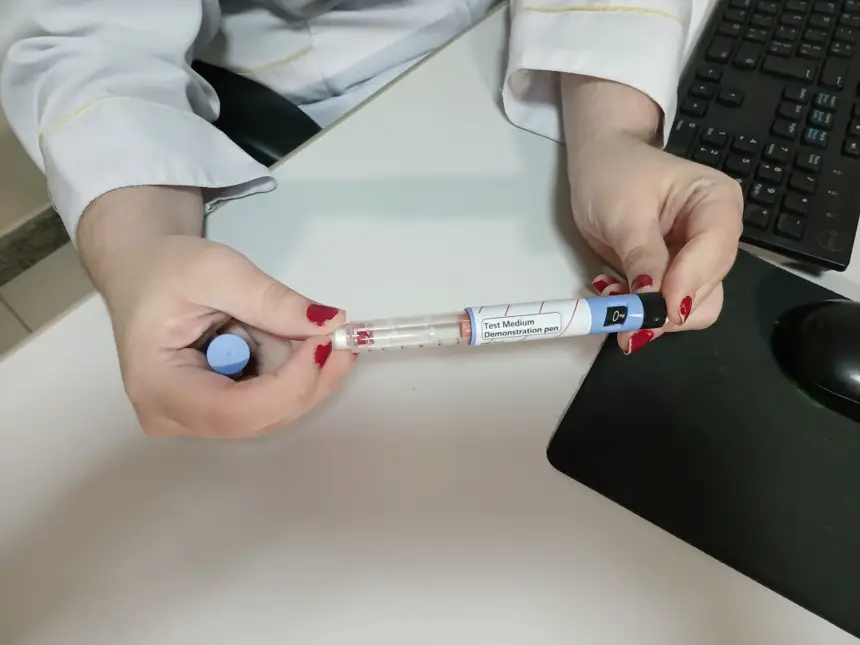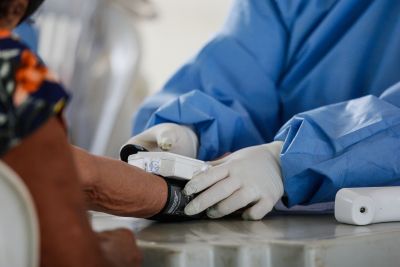Doctors at Jean Bitar Hospital warn about the conscious use of 'weight loss pens'
Originally developed for the control of type 2 diabetes, medications should be used under professional supervision
The medications popularly known as "weight loss pens" – which include GLP-1 analogs and, more recently, dual GLP-1 and GIP analogs – have gained popularity in the treatment of obesity. Originally developed for the control of type 2 diabetes, clinical studies have proven their effectiveness in combating excess weight, leading to an expansion of their indications.

In Brazil, liraglutide (marketed as Saxenda or Victoza) and semaglutide (found in the brands Ozempic, Rybelsus, and Wegovy) are approved for the treatment of obesity. The latest novelty in the market is tirzepatide, from the brand Mounjaro, which is expected to arrive in the country at the end of May. Although, for now, it has formal indication only for diabetes, clinical studies show promising results for the treatment of obesity.
In this scenario, the endocrinologist at Jean Bitar Hospital (HJB), Emanuelle Pantoja, explains that these medications are indicated for patients with diabetes who also have overweight or obesity, and also for people with a body mass index (BMI) starting from 27, as long as associated with comorbidities such as hypertension, high cholesterol, or diabetes itself.

"A thorough clinical evaluation is conducted, considering weight, height, and body composition. These diseases are chronic and require continuous monitoring. The use of medications should always be linked to medical care, as they are long-term treatments that control but do not cure obesity," emphasizes the doctor.
The nutritionist at HJB, Isadora Cordeiro, reinforces the importance of professional monitoring during the use of these medications, especially due to the side effects that may affect the patient's digestion and eating habits.

"It is essential to increase water intake, as these medications can cause dehydration by reducing intestinal flow. We also recommend the inclusion of soluble fibers, found in fruits, vegetables, and legumes, and insoluble fibers, such as those from oats and flaxseed. Additionally, the intake of lean proteins with low fat content is recommended. All of this should be associated with a balanced diet and regular physical activity," highlights the nutritionist.
Zero Obesity Program: a reference in the treatment of obesity in Pará
Jean Bitar Hospital is a reference in the treatment of obesity in the State of Pará, through the Zero Obesity program, an initiative of the State Government, in partnership with the State Department of Public Health (Sespa). Launched in September 2020, the program offers free bariatric surgeries, in addition to clinical follow-up and multidisciplinary support to patients.

Approval - Among the users benefiting from this program is Jéssica Matos, 32, a housewife from the city of Belém, who had her bariatric surgery at HJB seven months ago. She recalls that she weighed 135 kg before entering the Zero Obesity program. Currently, she weighs 100 kg and said she intends to reach 70 kg.
"I decided to have bariatric surgery because I found out I was pre-diabetic, had fatty liver, and was classified as grade 3 obesity. After the surgery, a lot changed, and I have received all the support from HJB, where I have monthly follow-ups with doctors, psychologists, nutritionists, and other specialists. I would tell others that it is a long journey, but in the end, you do not regret it and are happy with the result," concluded the patient.
Data - Since 2020, when the program was launched, until the end of the first quarter of 2025, more than 2,031 bariatric surgeries have been performed, benefiting patients from different regions of the state. The program ensures a comprehensive approach, with clinical evaluations, exams, consultations, and support in the pre and post-operative phases, promoting quality of life and well-being for participants.
Service: Jean Bitar Hospital belongs to the public health network of the Government of Pará and is managed by the National Institute of Social and Human Development (INDSH), in partnership with the State Department of Public Health (Sespa).
HJB provides assistance in medium and high complexity in the outpatient and hospital areas for transgender users, and in medical and surgical clinics for patients with metabolic and gastrointestinal diseases. The unit is located at Rua Cônego Jerônimo Pimentel, nº 543, in the Umarizal neighborhood, in Belém.
Text by Marcelo Zeno/ Ascom HJB









